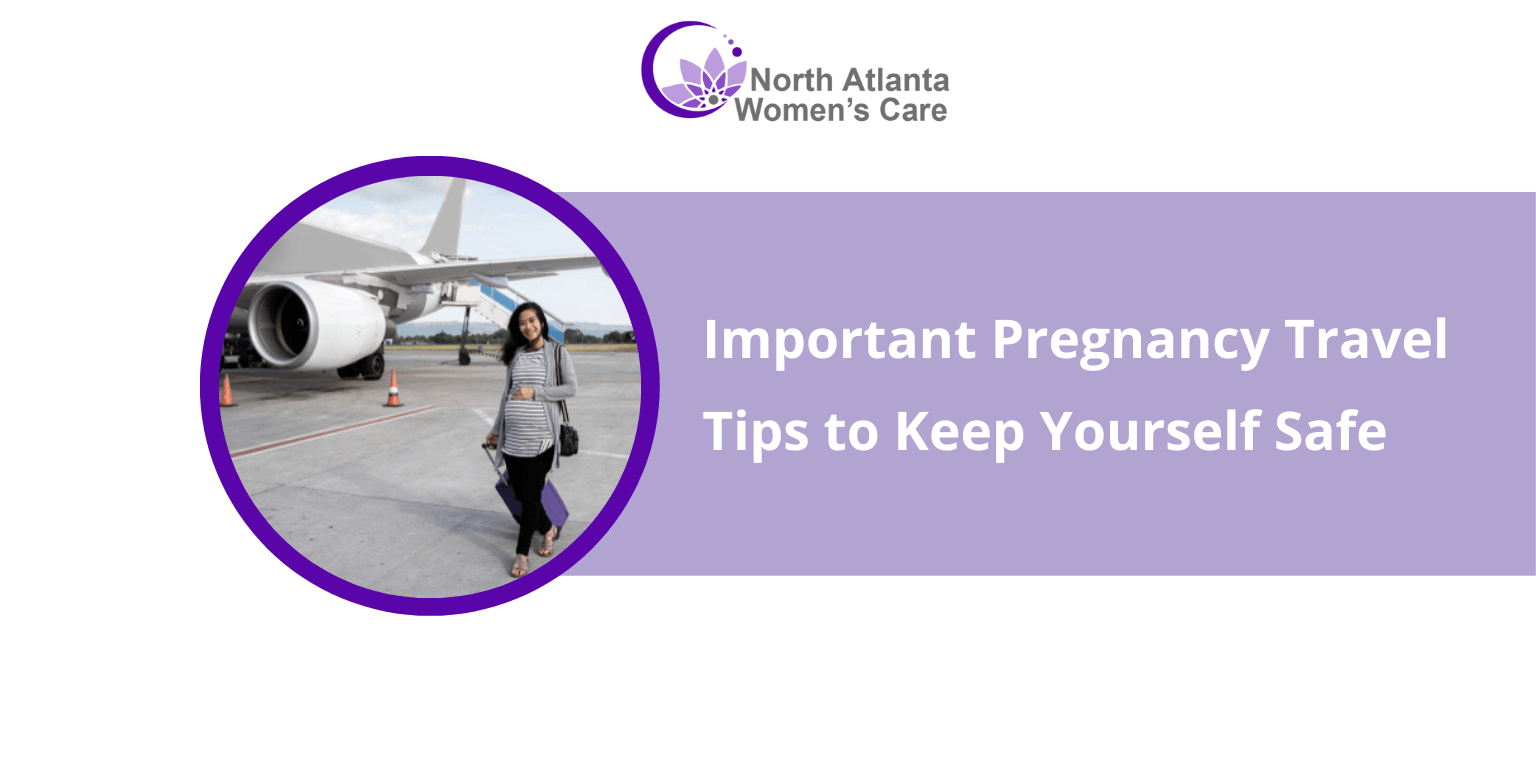Important Pregnancy Travel Tips to Keep Yourself Safe

Traveling for holidays or work is quite common. However, if you are pregnant and plan to travel, you must be extra careful. According to research, pregnant women have a higher risk of developing blood clots, known as deep vein thrombosis (DVT), while traveling. Planning for smooth and safe travel during pregnancy is crucial to ensuring your well-being and your baby's. Proper preparation and thoughtful considerations can mitigate potential risks and make the travel experience more comfortable.
Read on to find pregnancy travel tips, risks, and challenges.
Important Tips for Traveling While Pregnant
Planning for safe travel during pregnancy involves a comprehensive approach that includes health, comfort, and potential risks. Here are some travel tips during pregnancy that will help you in the long run:
-
Consultation with Healthcare Provider
You need to consult a healthcare provider before making travel plans. Your healthcare provider will review your records and provide programs or any medications you may need while traveling. They will also ensure your pregnancy is considered low-risk for travel and get personalized advice based on your specific health conditions.
-
Pre-Travel Health Checkups
A pre-travel health checkup is an important pregnancy tip. During the checkups, your healthcare provider can confirm your due date. They can also ensure you are up-to-date with your vaccinations or tell you about any symptoms you must watch out for while traveling. They will also recommend any measures you need while visiting specific places.
-
Ideal Trimester for Traveling
The optimum time to travel is during your second trimester when the chance of miscarriage is much reduced and morning sickness has passed.
-
Choosing the Right Destination
Before you schedule your vacation, consult with your doctor about your destination. Most travel is good, but you shouldn't go to places with widespread diseases or destinations that can affect your health. You should also ensure that you are in an area with adequate hospitals and that your travel insurance can cover any needed medical treatment.
-
Choosing the Suitable Transportation Options
Every transportation option has its problems. Whether you travel by car, flight, or sea, you will have various challenges associated with them.
For cars: There are steps you can take to make longer vehicle journeys safer and more enjoyable. Buckle your seat belt around your waist with the lap belt and the shoulder strap between your breasts and over your shoulder. Stop every hour or two to stretch your legs to lessen the possibility of a blood clot.
For Flight: Although flying poses negligible risks, taking the necessary steps is still ideal if you travel by plane. Wear support stockings, exercise your legs regularly, and remain hydrated to reduce the chance of blood clots.
Prior to your flight, consult your healthcare provider for specific pregnancy flying tips or advice tailored to flying while pregnant to ensure a comfortable and safe journey.
For Sea: Traveling by sea is mainly safe if you are pregnant, but remember that you may increase your motion sickness or become nauseous due to the ship's motion.
If you are traveling by boat, check with the cruise operator to ensure a healthcare practitioner is on board in case of pregnancy issues. You should also ensure that any drugs for seasickness are safe for you and pose no harm to the growing baby.
Examine the itinerary and ports of call to see if there is access to medical services, if necessary.
-
Essential Things to Keep for Traveling
You should have essential items while traveling, especially when you are pregnant. Pack necessary things, including medications, prenatal vitamins, comfortable clothing, and specific items your healthcare provider recommends. You can also bring snacks or other light foods to maintain energy levels.
Common Risks, Challenges and Tips for Traveling While Pregnant
Traveling during pregnancy comes with its own set of risks and challenges. Here are common threats and challenges associated with traveling while pregnant, along with tips to cope with them:
Deep Vein Thrombosis (DVT): Long periods of immobility during travel can increase the risk of DVT.
Tips:
- Take breaks to stretch your legs during long journeys.
- Wear compression stockings to improve circulation.
- Perform ankle exercises while seated.
Dehydration: Traveling, especially by air, can lead to dehydration.
Tips:
- Drink plenty of water before and during the journey.
- Limit caffeine and alcohol intake.
- Carry a reusable water bottle.
Discomfort and Fatigue: Prolonged travel can cause physical discomfort and fatigue, especially in cars.
Tips:
- Wear loose, comfortable clothing.
- Use supportive pillows for back and neck comfort.
- Plan rest breaks and prioritize sleep.
Air Travel Challenges: Cabin pressure and limited mobility on airplanes can be challenging.
Tips:
- Choose an aisle seat for more effortless mobility.
- Walk and stretch during the flight.
- Follow airline guidelines for pregnant passengers.
Morning Sickness: Morning sickness may persist during sea or air travel.
Tips:
- Pack nausea-relief snacks like ginger candies.
- Consider acupressure bands.
- Consult your healthcare provider for safe anti-nausea medications.
Stay Safe While Traveling During Pregnancy with North Atlanta Women's Care
Are you looking for pregnancy travel tips? If yes, then visit us at North Atlanta Women's Care. We have a team of competent gynecologists whose utmost duty is to provide the best pregnancy care in Suwanee, GA. We consider your unique needs and existing health conditions to provide personalized recommendations to help you in your travels. Contact us today to learn more about care plans.
Comments are closed

